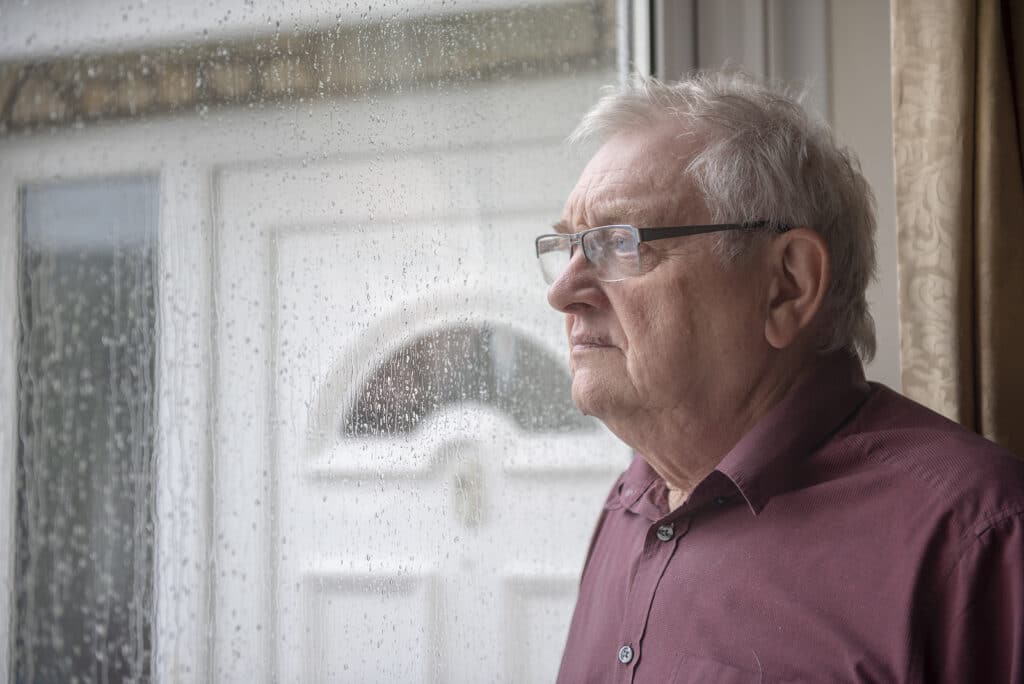Millions of individuals all over the world struggle with depression. People must understand that depression is not merely a feeling of melancholy that will pass but rather a medical issue that can affect a person’s disposition, thinking, and general well-being. Depression can strike anyone of any age, gender, or background, including seniors. For loved ones and personal care at home providers to assist seniors struggling with depression, they need to understand what depression is and then develop a treatment plan.
Table of Contents
ToggleWhat is Depression?
It is essential to understand that depression does not reflect a person’s lack of strength or character defect. It is a complicated disorder that can be brought on by various causes, including heredity, imbalances in brain chemistry, life events, and underlying problems. Seeking professional assistance is absolutely necessary for people who are experiencing depression. Support from licensed mental health professionals, such as psychologists or psychiatrists, can help build an accurate diagnosis and a specialized treatment plan that may include psychotherapy, medication, adjustments to one’s lifestyle, and the establishment of a robust support network.
For seniors, changes in their lives, including losing friends and loved ones, the ability to do tasks they once did, and feeling undervalued can all trigger depression. Seniors also find themselves more isolated than in their younger years, which can lead to feelings of loneliness and depression. Adding personal care at home helps seniors with engagement. It encourages them to work through the changes to enhance their health and well-being.
Symptoms of Depression
Depression’s symptoms are not limited to feelings of melancholy; instead, they can take many forms. The symptoms can include a loss of interest, exhaustion, changes in appetite and sleep patterns, problems concentrating, feelings of guilt or worthlessness, impatience, and even physical symptoms such as headaches or digestive issues. It is essential to be aware of these many symptoms to recognize sadness and differentiate it from the typical ups and downs of mood everyone experiences.
Depression frequently occurs with another mental health problem or a physical ailment. Depression often coexists with other mental health conditions such as anxiety, substance misuse, food disorders, persistent pain, and other medical concerns. To provide comprehensive care, treating depression may require addressing the comorbidities mentioned above.
Offering Support
Helping seniors who are affected by depression requires a strong emphasis on support and understanding. Sadly, this ailment is frequently associated with shame, misunderstanding, and social isolation. By cultivating a caring and supportive climate, loved ones and personal care at home aides may encourage open talks about mental health, give empathy, listen without passing judgment, and urge them to seek the assistance of a trained expert.
It is crucial to contact a mental health expert if depression continues. Helping seniors deal with this issue can positively impact all areas of their life and boost their well-being. Once depression is discovered, it’s essential to continuously monitor seniors as their environment changes, especially when dealing with loss. Open communication and personal care at home support are great ways to help seniors navigate this issue.
Providing exceptional Personal Care at Home for seniors and families in the Northern Virginia area, including Arlington, Alexandria, McLean, Reston, Burke, Ashburn, Centreville, Springfield, Manassas, and Oakton. Call today to speak with our caring staff: (703) 272-8838.
Source 1 / Source 2 / Source 3 / Source 4
- Seven Steps to Help Your Loved One Sleep Better After a Stroke - December 24, 2024
- Out in the Field: A Little Partnership Goes a Long Way - December 11, 2024
- Celebrating Thanksgiving - December 11, 2024



